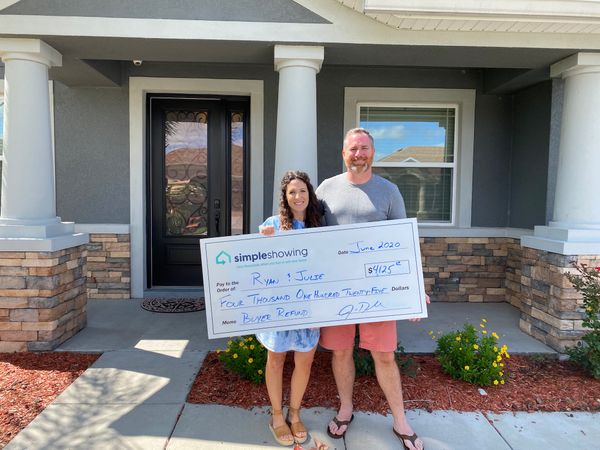Buying a home is a significant milestone in many people's lives. For first-time homebuyers, the process can seem daunting, especially when it comes to understanding the necessary qualifications. However, understanding these qualifications and how to meet them will help you navigate the home-buying process more smoothly.
In this article, we will cover the key qualifications for first-time home buyers, making it easier for you to take that big step towards homeownership.
What Constitutes a First-Time Home Buyer?
Before diving into the qualifications, it is essential to define what constitutes a first-time home buyer. According to the U.S. Department of Housing and Urban Development (HUD), a first-time home buyer is someone who:
- Has not owned a principal residence within the past three years.
- Is a single parent who has only owned a home with a former spouse while married.
- Is a displaced homemaker who has only owned a home with a spouse.
- Has only owned a principal residence not permanently affixed to a permanent foundation, such as a mobile home.
- Has only owned a property that was not in compliance with state, local, or model building codes and cannot be brought into compliance for less than the cost of constructing a permanent structure.
Credit Score and History
One of the most critical qualifications for first-time home buyers is a strong credit score and history. While the minimum credit score is achievable, a higher credit score will not only increase your chances of mortgage approval but also help you secure a lower interest rate, which can save you thousands of dollars over the life of your loan.
Lenders typically look for a credit score of at least 620 for conventional loans, while some government-backed loans, such as FHA loans, may have more lenient credit requirements.
To improve your credit score:
- Pay your bills on time.
- Keep your credit card balances low.
- Limit hard inquiries on your credit report.
- Dispute any errors on your credit report.
- Avoid closing old credit accounts, as this can negatively impact your credit history.
Stable Employment and Income
Household Income
Another essential qualification for first-time home buyers is stable employment and a reliable income. Lenders want to see that you have a steady job and can afford to make your monthly mortgage payments.
Generally, lenders prefer borrowers who have been with their current employer for at least two years. However, if you have recently changed jobs, a consistent work history in the same field may still be acceptable.
When assessing your income, lenders will consider:
- Base salary or hourly wages.
- Overtime, bonuses, and commissions, if applicable and consistent.
- Alimony or child support, if you choose to disclose it.
- Self-employed income, if you can provide two years of tax returns and financial statements.
Debt-to-Income Ratio
Mortgage Loan
Your debt-to-income (DTI) ratio is another crucial qualification for first-time home buyers. This ratio compares your monthly debt payments to your gross monthly income, and lenders use it to determine your ability to manage your mortgage payments alongside your existing debts.
Most lenders prefer a DTI ratio below 43% for conventional loans, while government-backed loans may have slightly more lenient requirements. To lower your DTI ratio:
- Pay off or reduce high-interest debts.
- Refrain from taking on new debt before applying for a mortgage.
- Consider consolidating or refinancing existing debts to lower monthly payments.
- Increase your income, if possible, through additional work or a higher-paying job.
Down Payment and Savings
First-Time Buyers
Having a sufficient down payment is another vital qualification for first-time home buyers. While it is possible to obtain a mortgage with a low down payment, a larger down payment can significantly reduce your monthly mortgage payments and help you avoid private mortgage insurance (PMI), which can add to your monthly housing costs.
Conventional loans typically require a minimum down payment of 3-5%, while government-backed loans, such as FHA and VA loans, may have lower down payment requirements or even no down payment requirement for eligible borrowers.
To save for a down payment:
- Create a budget and prioritize savings.
- Automate your savings to a dedicated account.
- Reduce unnecessary expenses.
- Consider down payment assistance programs or gifts from family members.
In addition to a down payment, lenders will also want to see that you have enough savings to cover closing costs, which typically range from 2-5% of the home's purchase price. Having a financial cushion for unexpected expenses, such as repairs or maintenance, can also be beneficial.
First-Time Home Buyer Programs
Loan Programs
To assist with meeting these qualifications, first-time home buyers can take advantage of several federal, state, and local programs designed to make homeownership more accessible.
These programs may offer down payment assistance, lower interest rates, or reduced closing costs. Examples of these programs include:
- FHA loans: Government-backed loans with lower credit score requirements and down payments as low as 3.5%.
- VA loans: Government-backed loans for eligible veterans and active-duty military personnel, often with no down payment requirement.
- USDA loans: Government-backed loans for home purchases in designated rural areas, with no down payment requirement for eligible borrowers.
- State and local first-time home buyer programs: Many states and local governments offer programs tailored to the specific needs of first-time home buyers in their area.
Preparing for Homeownership
Qualifications for First-Time Home Buyer
As a first-time home buyer, understanding and meeting the necessary qualifications is only part of the process. It's essential to educate yourself about the home-buying process, from house hunting to closing, and to work with experienced professionals, such as real estate agents and mortgage brokers, to guide you along the way.
Closing Cost Assistance
In conclusion, understanding the key qualifications for first-time home buyers, such as credit score, stable employment and income, debt-to-income ratio, down payment and savings, and available assistance programs, will help you navigate the home-buying process with confidence. By taking the time to prepare and meet these qualifications, you'll be well on your way to successfully purchasing your first home.






